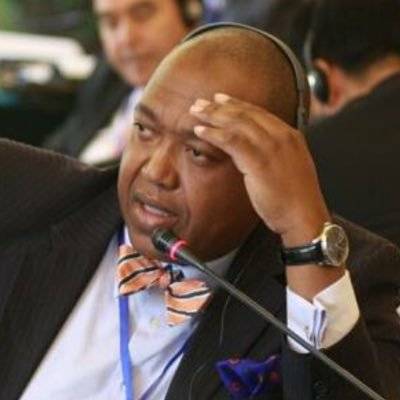Saudi Arabia, the UAE, Bahrain and Egypt have been leading a political and economic blockade against the state of Qatar since 5 June 2017, which has led to the “Gulf Crisis”. Words matter in politics – the blockading nations refuse to accept that there is a crisis in the region and argue instead that things remain normal in many parts of the Gulf except in Qatar.
Many commentators, including this writer, argue that the blockade has in fact impacted economics, society and politics in the region leading to a regional crisis. According to Brookings Doha, “in 2015, the value of Qatar’s trade flows totaled over $2 billion with Saudi Arabia, $7 billion with the UAE, and $500 million with Bahrain. Qatar exports more to these three countries than it imports”.
The continuation of the blockade has certainly impacted these trade flows, which has had in turn had a negative economic effect on the economies of all the countries concerned. The blockade has also crippled how the Gulf Cooperation Council (GCC) functions. The GCC is the economical and political umbrella body consisting of Kuwait, Qatar, Saudi Arabia, Bahrain, Oman and the UAE. Since the blockade began, the GCC has failed to reach consensus on a number of pressing political and economical matters in the region.
Moreover, the blockade has created a crisis within families in the region. Many families in the region have cross-border relations yet their movements have been severely impacted by the blockade. Furthermore, it has raised the prospect of war leading to political uncertainty. Turkey has set up a military base in Qatar with the capacity to hold 5,000 troops. These are but a few examples that observers and commentators have cited to justify their argument that there is a crisis in the region.
Qatar blockade: Between a corrupt US president and impulsive Middle Eastern despots
There is likely to be a number of articles published this month that will elaborate on the negative impact of the ongoing crisis. However, this crisis has also brought a number of political opportunities to Qatar. First, when the blockade began the supply of food particularly dairy products was the first to be largely affected. Before the blockade Qatar was importing 90 per cent of its food and dairy products from its neighbours. Hours after the blockade people panic bought dairy products leading to many shopping outlets running out of stock. Almost overnight Turkey and Iran came to the rescue and replenished the shortfall.
Qatar was swift in coming up with solutions to prevent such situations from reoccurring in the future. It developed the rather small Baladna Dairy Farm into a state of the art facility. Baladna Dairy Farm, which is situated on the outskirts of Doha, had an ambitious plan of importing 14,000 Holstein cows for milk production. According to the Finance Minister of Qatar Ali Sherif Al-Emadi, by June 2018 Qatar will be self-sufficient in terms of meeting its dairy needs.
![A ship carrying 4,000 tons of food for Qatar prepares to depart from in Izmir, Turkey on 22 June 2017 [Cem Öksüz/Anadolu Agency]](https://i0.wp.com/www.middleeastmonitor.com/wp-content/uploads/2017/06/2017_6_22-First-ship-carrying-food-departs-Turkey-for-Qatar20170622_2_24363509_23378891.jpg?resize=500%2C333&ssl=1)
A ship carrying 4,000 tons of food for Qatar prepares to depart from Izmir, Turkey on 22 June 2017 [Cem Öksüz/Anadolu Agency]
The political isolation of Qatar in 2017 could not have come at a better moment. Qatar was quick in seizing the opportunity to bail out of the Saudi-led coalition and consequently absolved itself from the bad publicity and financial responsibilities.
Third and perhaps most importantly Qatar was forced to embark on a global charm offensive after the blockade. The Emir of Qatar, Sheik Tamim Bin Hamad Al-Thani, and the minister of Foreign Affairs of Qatar, Sheikh Mohammed Bin Abdulrahman Al-Thani, have travelled the world trying to dispel the “untruths” that are spread about Qatar. It was a baptism of fire for the young Bin Abdulrahman who was only a year and a couple of months into the job before the crisis began.
Read: Speculation over Saudi Crown Prince health amid rumours of his death
Together they have been involved in a number of international gatherings which have to an extent facilitated the conveyance of their message to the world. In February 2018 Bin Hamad addressed the Munich Security Council (MSC) in Germany. MSC is one of the most prestigious political gatherings that bring together global political leadership and influencers. Bin Rahman likewise participated with world foreign ministers at this year’s Rome 2018 Mediterranean Dialogue in Rome, Italy. They have also embarked on an extensive Sub-Saharan African tour covering a number of key countries in the region.
In conclusion, the crisis has undoubtedly impacted on economics, politics and society in Qatar. However, it has presented opportunities for Qatar as well. The country has started looking at alternative markets for its essential food supply, it has also aggressively started looking at its own potential in meeting its other national needs. Importantly it has challenged itself politically by strengthening its relationship with Europe, Africa and other parts of the world which did not feature prominently in its political radar in the past.
Read: Timeline: Arab rift with Qatar
The views expressed in this article belong to the author and do not necessarily reflect the editorial policy of Middle East Monitor.

![Egypt, Saudi. Bahrain, UAE meeting Cairo to discuss Qatar [Anadolu Agency]](https://i0.wp.com/www.middleeastmonitor.com/wp-content/uploads/2017/07/20170705_2_24568958_23765939-scaled.jpg?fit=920%2C613&ssl=1)







